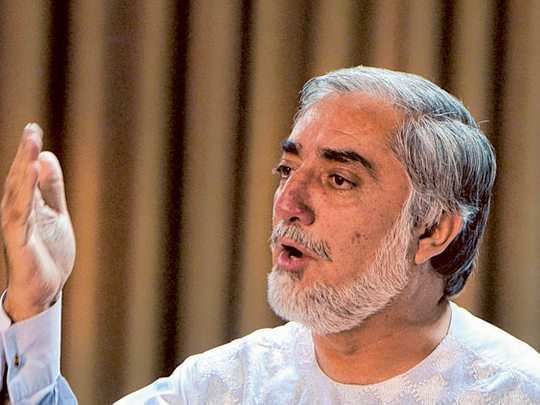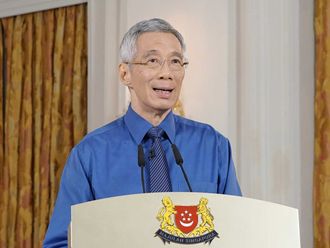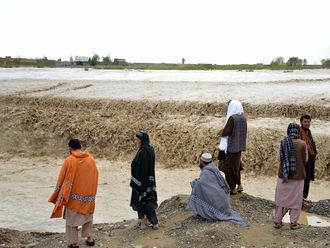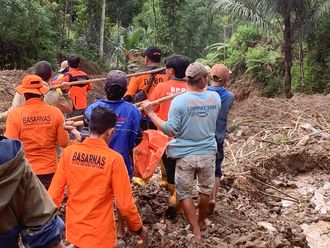
Abdullah Abdullah’s political journey took him from life as a practising eye surgeon to presidential contender cheered on by thousands at rallies across Afghanistan.
The Tajik-Pashtun politician was Hamid Karzai’s closest challenger in Afghanistan’s last presidential election in 2009. He is seen as the front runner in 2014, having scored the most votes in the first round of the presidential poll.
Born in September 1960 in the Kabul area, he is seen by many as a Tajik despite his mixed ethnicity.
This is probably because of his past prominence in the Tajik-dominated Northern Alliance and his close relationship with the anti-Taliban group’s famed former leader, Ahmad Shah Masoud.
Abdullah began his career in Kabul’s eye hospital but left for Pakistan in 1982 after the Soviet invasion of Afghanistan.
Throughout the 1980s, he co-ordinated treatment and health care for resistance fighters and civilians in Afghanistan, and that is where he first became associated with Masoud. He eventually became an adviser and close friend to the commander, who was assassinated in 2001.
Serving as foreign minister in the short-lived government headed by the Northern Alliance, Abdullah continued as “foreign minister-in-exile” throughout the years of rule by the Taliban, which was ended by the US-led invasion in 2001.
Following the fall of the Taliban, he served as foreign minister in Hamid Karzai’s administration but resigned in 2006 and registered as an independent candidate to contest 2009’s presidential election.
Abdullah lacked his own power base within the Northern Alliance, which might explain why he lasted so long in the Karzai government — but could also be the reason for his eventual replacement as foreign minister.
The suave and smooth-talking politician said during the 2009 election campaign: “Karzai turned a golden opportunity into disaster. There’s no point giving him five more years.”
And even with Karzai’s absence in the latest contest, Abdullah has expressed his concern in an interview with the UK’s Independent newspaper: “The aim has to be to recreate opportunity because as it seems at the moment it’s so hopeless. It’s a downslide in many ways.”
Abdullah certainly has political pedigree — his father, Gulam Mahyyoddin Zmaryalay, was a senator in the final years of the rule of King Zahir Shah.
He has been quoted as saying that his early years were split between Kabul and Panjshir province, where his father held an official post.
After graduating from high school, he went on to study ophthalmology at Kabul University and worked at the Noor institute in Kabul before going to Pakistan.
There is some confusion over whether his name should have two elements or one, the latter being the style for many Afghan names.
Some reports suggest the second “Abdullah” emerged as a result of a misunderstanding at a news conference.
Married with three children, he is fluent in Dari, Pashto and English, and proficient in Arabic and French.
— Compiled from agencies












